*Disclaimer: This article features commentary from active-duty Marine, Captain Michaela Larson. The views are solely her own and are not intended to represent the official views of the United States Marine Corps
A troubling threat is encroaching upon the U.S military, and I’m not talking about the threat of world war. All six branches of the military are falling precariously short of recruitment goals by the thousands. Additionally, applications to service academies have fallen drastically, with the Air Force Academy seeing a 28% drop and the Naval Academy seeing a 20% drop between 2021 and 2022.
As members of Gen Z are now entering and exiting college and deciding upon careers, military service has become a less attractive option to the generation that is lucky enough to have grown up in a post-9/11 era of relative peace. Baby Boomers and members of Gen X had to live through the terrors of Vietnam and the Cold War, where many were drafted to serve or opted for ROTC programs, while many Millennials were motivated to serve after the atrocities of 9/11. Because of the draft and the higher frequency of conflicts in their lifetime, many Boomers and members of Gen X have personal experience with military service or come from families with members in the military, so they directly understand from familial support and duty the importance of military service. Additionally, Millenials have many defining moments in their early years that have ingrained the importance of service in many Millennial minds. However, the time period that Gen Z has grown up in has not offered these personal or social experiences that explicitly show them the importance of military service. Gen Z Americans are incredibly privileged to have grown up in a time of an all-volunteer military and in a time of relative peace as most members of Gen Z weren’t even alive for the events of 9/11 that spurred the most recent motivation to serve in the armed forces.
It can be easy to say that we may not need to be recruiting at such high numbers since the U.S. is not facing an urgent military threat at this time. But under-recruitment for the military prevents the cultivation of a robust and strong military that may soon face an urgent threat. We shouldn’t wait for another 9/11 to happen to boost recruitment numbers. To understand the different perspectives behind the decline in military recruitment, how Gen Z is fueling the problem, and why it would be healthy for America and Gen Z to have more young Americans pursue military service, I spoke to three individuals who understand the importance and gravity of military service.
Dan Hartman was a junior in college in 1966 when the Vietnam War was raging. In what he called “a matter of life and death,” Hartman opted to spend his last two years in college as an Army ROTC cadet to enter the Army as an officer rather than a private. Mr. Hartman served two years in Germany as a counterintelligence officer, and a year in Vietnam as a counterintelligence officer as an advisor to a South Vietnamese intelligence unit.
Megan Nordlund—a friend I used to do ballet with—is an Air Force ROTC cadet at the University of California, Riverside who was motivated to serve by the inspiration she saw in her older cousins and because of her dedication to protect and defend the U.S. Constitution to maintain the strong security of the U.S.
Lastly, Captain Michaela Larson serves as a Marine Corps Judge Advocate, who has been on active duty since 2021 after graduating from Notre Dame Law School. Born in 1996 as the oldest of seven children, the events of 9/11 motivated Captain Larson to serve to protect her country and her six younger siblings. Mr. Hartman (a Baby Boomer), Captain Larson (a Millennial), and Ms. Nordlund (Gen Z) are all from very different generations and backgrounds, but their inspiration to serve has shown that these three courageous individuals have strong shared values and insights from their time dedicated to service.
One concern Mr. Hartman, Ms. Nordlund, and Captain Larson all expressed to me is that the internet and social media were fueling Gen Z’s reluctance to serve. From Mr. Hartman’s perspective as a Vietnam War veteran, if the internet and social media had existed during that war, there would have been a lot more skepticism about American involvement in Vietnam and a lot more education on general military involvement. This observation exposes the blessing and curse that is the overabundance of information and the plethora of information waiting to be exposed on the internet. Social media specifically has fueled the platforming of more diverging opinions than has ever been broadcasted before, as opposed to the time of the Vietnam war when there were only a few broadcast television networks and as Mr. Hartman stressed, most of our political exposure came simply from our family, rather than random talking heads on the internet.
It’s no secret that platforms like TikTok are bastions of partisan and propagandistic anti-American content (fueled by Chinese ownership of the platform), which could be correlated to the decline in patriotism among Gen Z. This also contributes to a decline in confidence in the American military that is currently happening. In Mr. Hartman’s time, patriotism ran through families, and when he was called up to serve, his family understood and supported his service to the United States. However, the number of families with World War and Vietnam War veterans are dwindling, and if Gen Z isn’t motivated by factors like family heritage to serve, and thus not receiving their education on the practical duties of the military through trusted individuals, they’re likely going to get their information and views from social media talking-heads who have inadequate expertise on the actual duties of the military. Ms. Nordlund added onto the lack of patriotism problem as a result of political upheaval running rampant on social media. It is quite noticeable, Ms. Nordlund observed, that people on the internet have put out a stereotype that associates military service with the conservative end of the political spectrum. However, Mr. Hartman and Ms. Nordlund both stressed that whatever divisive propaganda put out on social media says, the American military is an apolitical institution and should under no circumstances be used as a political weapon because the military is here to protect the United States and all its citizens. Those who don’t serve their country and instead criticize it on TikTok may try to push these dangerous and partisan narratives about political affiliations of the military, but actual service members know that their service is not defined by, nor motivated by political reasons.
Another internet-fueled epidemic my three interviewees mentioned is the poor mental and physical health fueled by social media that has festered in internet-addicted Gen Z. The Pentagon estimates that only about 23% of American young adults can meet physical military requirements, and of this 23% that are eligible to serve, only about 9% had any inclination to do so. Mr. Hartman, Ms. Nordlund, and Captain Larson all attributed this to internet addiction among Gen Z causing a decline in putting physical fitness first, where Gen Z is spending more and more time sedentary because of increased internet usage. When asked about lowering physical standards to allow for a greater number of qualifiers, Captain Larson vehemently opposed this. She stressed that the military is the utmost professional and physically demanding job, where even if you have certain allergies you can’t join because of the strict environments service members are put in. These requirements are not to cultivate an exclusivity complex, but simply for safety. “Somebody out there is training every day to try to kill you,” Captain Larson emphasized as something she hears frequently in the Marines, supporting the idea that it should be obvious that lowering standards for our service members sends the exact opposite message we should be sending to our enemies.
As two young women who grew up with the rise of social media, Captain Larson and Ms. Nordlund were able to speak about the problems that social media poses to the mental health of Gen Z, and why this could be contributing to the decline in motivation to join the military. Captain Larson emphasized how social media seems to highlight everything you are missing out on in life, and for a generation that is bombarded with the supposed dream lives of influencers who travel the world enjoying extensive leisure time, it is no secret that the unflappable discipline and strict schedule of military service no longer looks appealing when the prospect of becoming an influencer looks more and more attainable. Joining the military is a tough job that requires immense physical and mental stamina, and the rise of social media not only hurts mental health in general, but it also could seriously hurt service members who see their peers enjoying much more lax lives. Gen Z, the generation that grew up with the coining of the term “FOMO,” is especially afraid of missing out on enjoying lives like the influencers they see on social media. When touching on this issue, Captain Larson brought up a very poignant question about what Mr. Hartman would have felt if he had access to social media while he was deployed in Germany and Vietnam. Would he have seen his friends who weren’t enlisted enjoying life in college back home? Would his mental health have declined because of his much more stressful position in life? While Mr. Hartman claimed the difference between serving in Germany and Vietnam was “like night and day,” these hypothetical questions bring up points about the meaning and consequences of service that could inspire Gen Z to serve. Ms. Nordlund pointed out to me that many of these issues and questions about attitudes towards military service are arising because there are many misperceptions about the military that are arising: misperceptions about what life in the military involves, what its consequences may be, and who joins it. While my three interviewees underscored that the military is an incredibly strict job requiring stamina, stability, and strength, the military also provides invaluable skills, opportunities, and perspectives on life that really can’t be fulfilled in the same way anywhere else.
The misperception that the military isn’t a “fun” job is only somewhat true, Captain Larson noted, and if Gen Z knew about the incredible opportunities that the military provided, maybe it would be seen as a more attractive career. As all three interviewees were eager to tell me, a career in the military provides a great opportunity to travel and gain invaluable experiences and relationships. When Mr. Hartman described his time in Germany to me, he looked back on his time with fond memories of great experiences he might not have had with any other career, like his memories of skiing through the German mountains, exploring the city, and learning the language. Captain Larson reiterated the extensive travel opportunities the military provides for whatever career you pursue, as she recounted to me her fond memories of her time in Newport, Rhode Island with the Marines (although she claimed that if you’re a homebody, the military probably wouldn’t be your idea of fun).
Captain Larson also pointed out that there is a rampant misperception that people often think of the military as the job for the people who didn’t have any other option or, plainly, for people who aren’t smart. Oftentimes pop culture (especially in shows like “Cadet Kelly”) can satirize privates as helpless individuals pursuing a “last resort” job. But as Captain Larson knows firsthand, this myth is far from the truth. Captain Larson, a graduate of Notre Dame Law School, has spent her time as a Judge Advocate serving with and learning from some of the smartest, wisest, and most well-prepared people in the country. Mr. Hartman also talked of his time in the military as one where he learned the greatest leadership skills from the brilliant minds that serve in the U.S. armed forces. Some of our country’s smartest and most successful leaders come from military backgrounds, and even many of those who attend some of the most prestigious universities find successful and fulfilling careers in the military. To have a strong military, we need a smart military and the reason the United States is able to have such a strong military is because we have some of the brightest minds in the nation serving our country.
One last, but very important misperception that Captain Larson brought up is the virulent problem of young Americans viewing military service as a path to PTSD and mental health issues. According to a Defense Department survey, about 57% of young Americans who answered stated their concern that they would suffer from emotional or psychological problems after serving in the military, likely because Gen Z has largely seen media depictions of veterans suffering from PTSD and homelessness. Where the military can be a very dangerous and mentally challenging job, Captain Larson stated her full faith in the ability of today’s U.S. Department of Veterans Affairs to provide service members with the help they need.
So how do we solve this problem of Gen Z’s malaise towards military service, and what could solving this problem do for Gen Z and the nation? Solving this problem will largely come down to education, which could take the form of teaching Gen Z about defending America and about all the benefits that military service can bring to one’s personal growth. Mr. Hartman was particularly in favor of making sure that patriotism and the importance of American leadership in the world were stressed more in schools, now that anti-American content is running rampant online. Mr. Hartman and I both bonded over our love for our amazing country and all the opportunities it’s given us, and we should all feel overwhelmingly lucky to live in a country that provides freedom and opportunity to everyone, and with the decline in military education through veterans in the family, schools should be teaching more thorough civics classes that discuss the privilege it is to live in America and what American leadership can do for the world.
Additionally, making known the wide range of benefits that a career in the military can offer is incredibly important for Gen Z. Hearing my interviewees’ perspective on the personal benefits of military service and the incredible honor and opportunity it brought them was profoundly inspiring, and I think if more people heard their stories, and the many stories like theirs, it could help debunk misperceptions and lead many young Americans to stand up and serve their country. Mr. Hartman described his time in the Army as “an honor, pure and simple,” where he espoused the once-in-a-lifetime opportunities he earned from his time working in a team of like-minded people who all had the common goal of service beyond oneself, the invaluable organizational skills he developed, the leadership example of people he got to serve under, and the unforgettable travel experiences. Ms. Nordlund echoed similar feelings of honor and growth, where in her time as an ROTC she has already developed better leadership skills, the ability to handle incredibly stressful environments, and the contagious motivation of being in a team environment where everyone is there for a good reason.
I was especially curious about Captain Larson’s journey to the Marines JAG Corps, as many graduates of prestigious law schools often take routes of highly lucrative jobs in the corporate law sector. To this, she responded that the decision to serve in the military as a Judge Advocate trial counsel was about being part of something bigger than herself, and one that provided a unique experience that allowed her to jump into trial law head first. The Judge Advocate route allowed her to gain more experience right away in the courtroom than many of her peers, to train as a Marine with the possibility of deployment, and to practice many different types of law. In the same way that astronauts describe the perspective that seeing the Earth from outer space gives them, Captain Larson describes military service as an experience that gives one a perspective you can’t gain anywhere else– a perspective that she says has changed her outlook on life, relationships, and herself. She described how everywhere you turn you see true sacrifice– where everyone knows someone who has sacrificed more. Because of this, her value on life has changed, where she understands better now the importance of having solid foundations in life and relationships. Additionally, the dedication she is surrounded by in the Marines has helped her make fast friends with her fellow service members, who she has no doubt will be lifelong friends to her. Lastly, and probably most importantly considering the decline of mental health in Gen Z, Captain Larson stressed how the Marines beat confidence into her. Joining the Marines showed her what she was capable of, what her body and mind could handle, and how much she could grow in just two years of service. In her words, the Marines “made her a better everything.” Her story is one that fully embodies the benefits that dedication to a career in military service can bring, and if more members of Gen Z were exposed to stories like these, maybe they could be more inspired to join.
There are no wars right now that the United States is intervening militarily with troops on the ground, the pullout of Afghanistan was more than two years ago, and we have not seen a terrorist attack on a large scale since 9/11. So for those who would be inspired by stories like Mr. Hartman’s, Ms. Nordlund’s, and Captain Larson’s, but also don’t see a reason to be incredibly alarmed by the decline in recruitment, I would argue that even in this time of relative peace, it is imperative that the United States continues to have a robust and dedicated military. Gen Z is observing one of the most divided times America has ever been in, and many of us want to take part in changing our country for the better. As Captain Larson said, 9/12/2001 is the day that Americans came together; her warning: don’t wait for another 9/11 to achieve the unity of 9/12. Uniting our country can happen, but it must involve members of Gen Z putting aside their differences and individualistic endeavors to commit themselves to projects that are bigger than themselves, and there is no better way to do that than by joining the armed forces. This doesn’t have to involve mandatory service or shaming Gen Z out of their TikTok addiction, because neither of those options will likely be feasible in America. What it does involve is making sure that Gen Z sees service as an attractive career path for personal growth and leadership development. Starting from that basic belief, Gen Z could have the power to help heal the divide in America.
Featured Image Source: Defense.gov
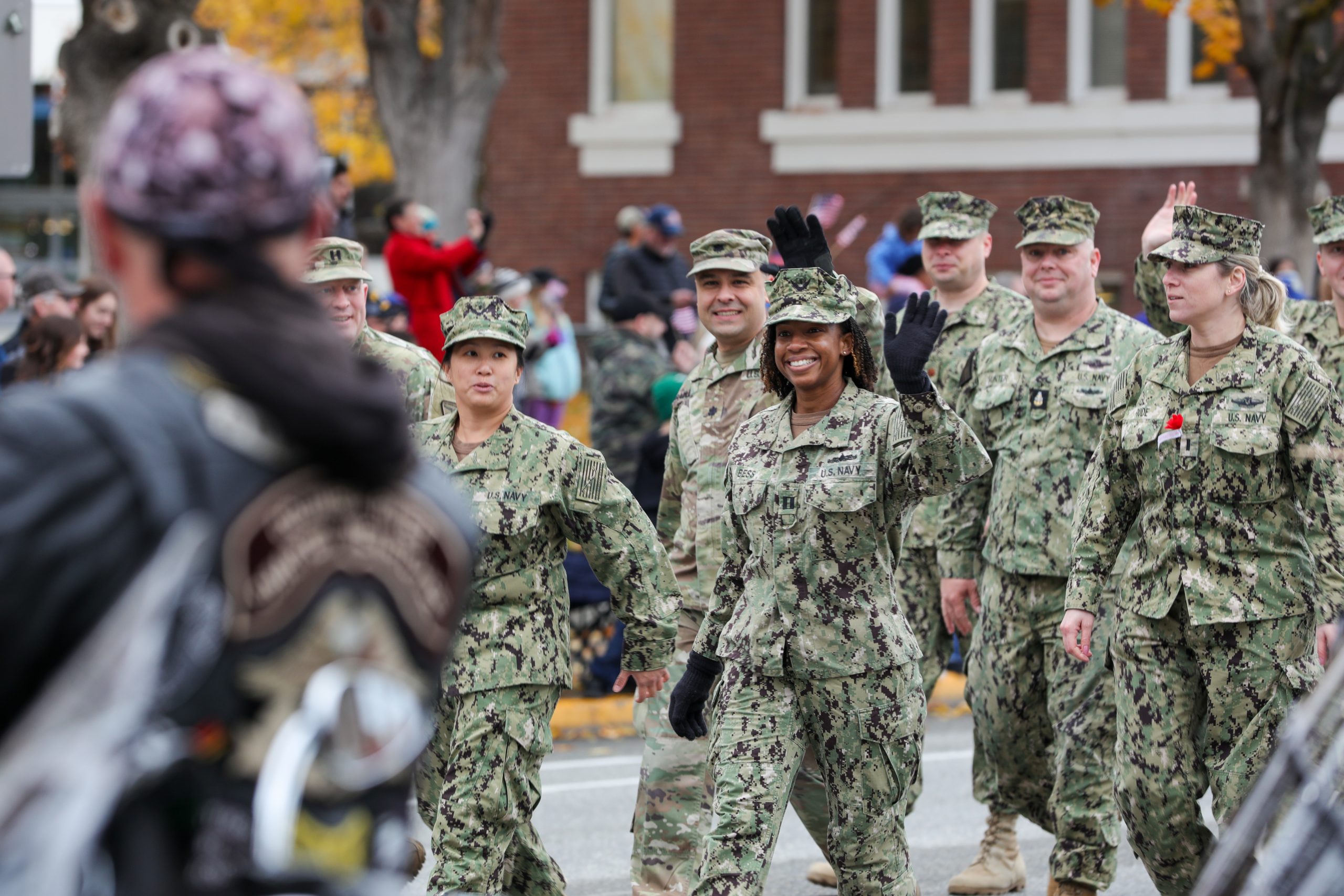
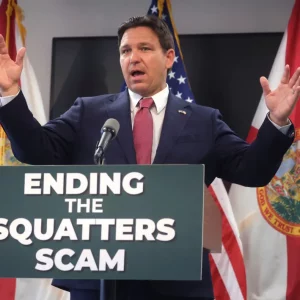
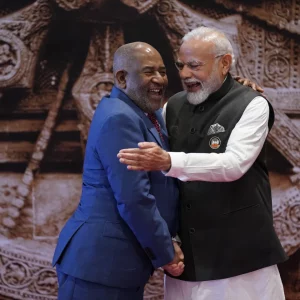
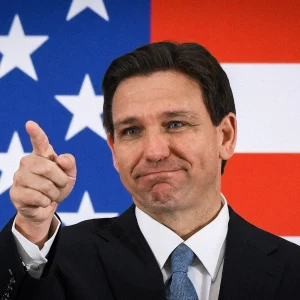

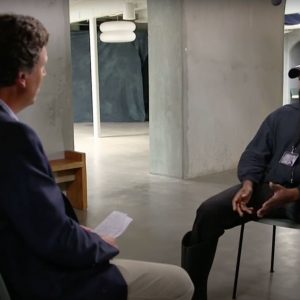
Comments are closed.